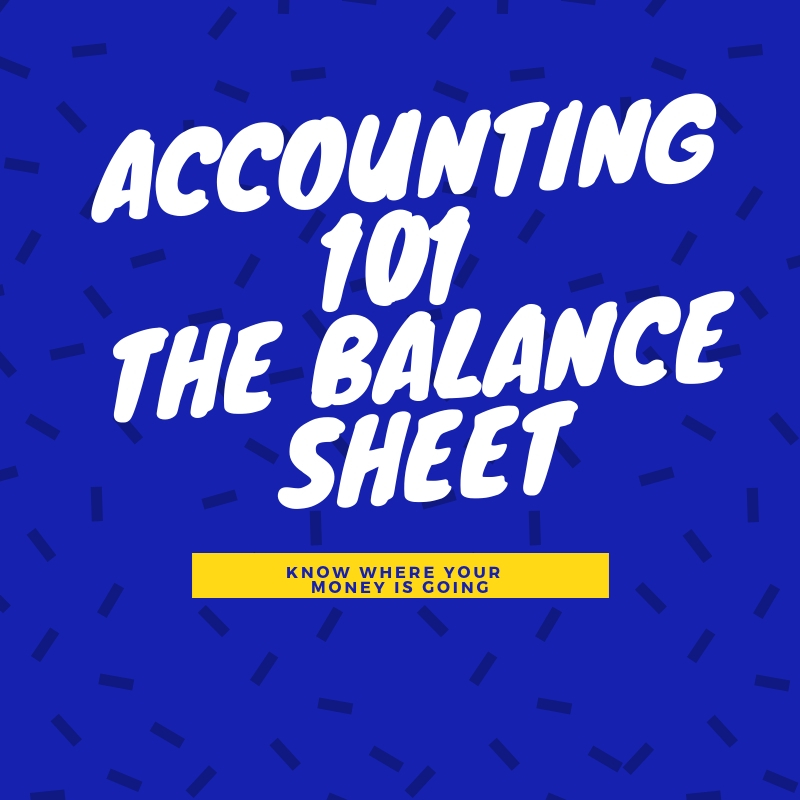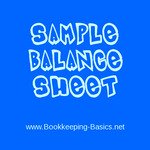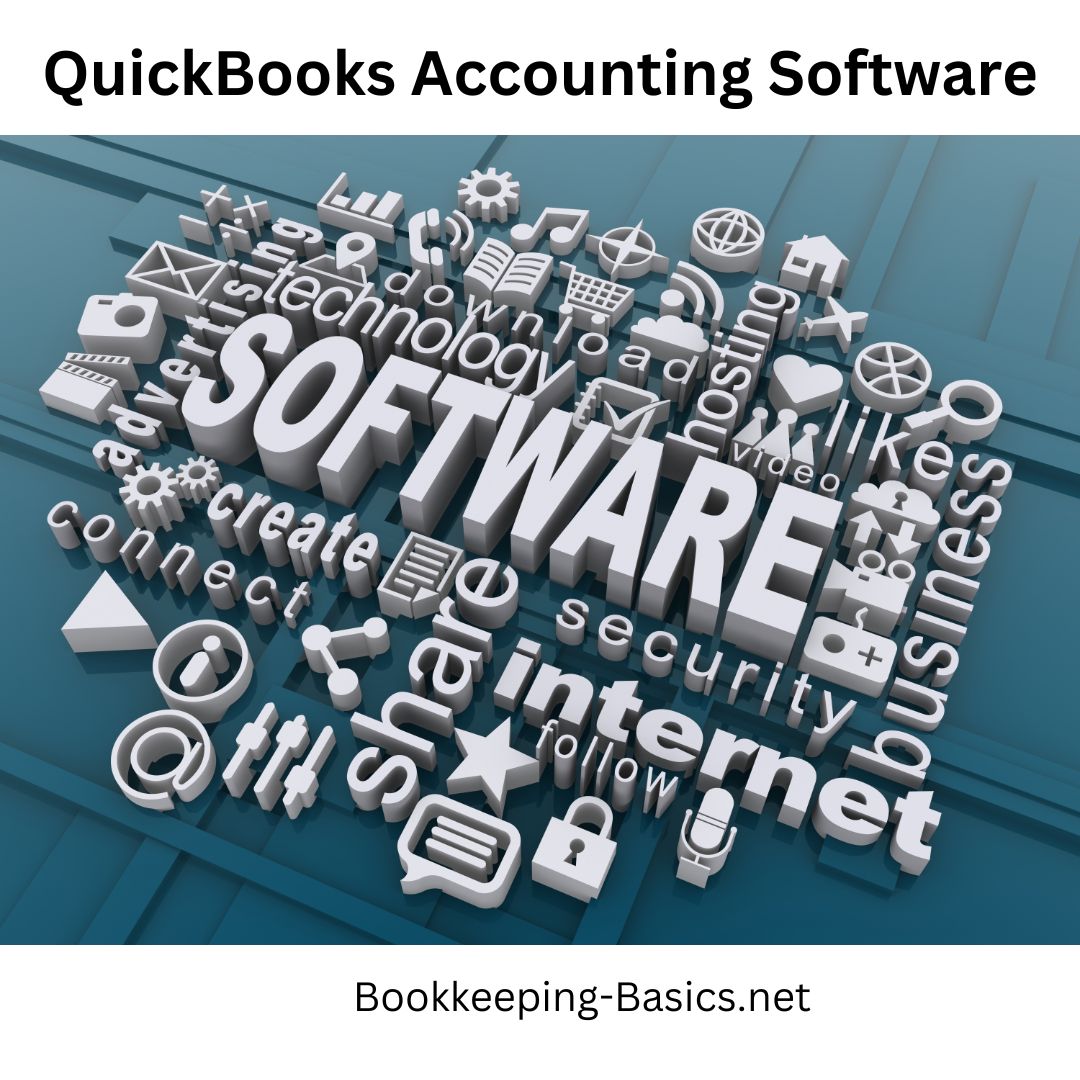- Home
- Accounting 101
- Balance Sheet
Accounting 101 The Balance Sheet
Know Where Your Money Is Going
What do you think of when you hear: Accounting 101 The Balance Sheet as a small business owner?
The answer
we receive most often is: I need to know where my money is going.
So, let’s use
an extreme analogy; as a small business owner,
your business finances are your blood and your books are your veins; good
bookkeeping keeps your business flowing.
Accounting 101 The Balance Sheet
A big part of Small Business Accounting 101 is the balance sheet. The balance sheet is the big-picture summary of how your business is doing at a moment in time, usually at the end of a month or year.
If you have investors or are seeking a loan, you most likely will need to produce a balance sheet to show them why you and your company are worth their investment.
A balance sheet has three main components: assets (the things you own), liabilities (the things you owe), and equity (the amount you and investors have put in).
For any small business owner it's essential Accounting 101 to understand all three of these categories in the balance sheet.
Accounting 101 The Balance Sheet - Assets
@bookkeepingbasics1 @Dive into the fundamentals of the balance sheet with this comprehensive article from Bookkeeping-Basics.net! 📖💼 🔗 Article Link: Discover more here Whether you're a student, a business owner, or simply curious about financial statements, this article provides a clear breakdown of the balance sheet and its importance in assessing a company's financial health. 💰💡 Learn about assets, liabilities, and equity, and how they intertwine to present a snapshot of a company's financial position. Gain valuable insights and sharpen your accounting skills! #Accounting101 #BalanceSheet #FinancialLiteracy #BookkeepingBasics #FinancialStatements Don't miss out on this valuable resource! Click the link above to read the article and expand your accounting knowledge. 🎯✨ #BookkeepingBasics #AccountingEducation #FinancialEducation #KnowledgeIsPower
♬ original sound - Bookkeeping Basica - Bookkeeping Basics
Assets are everyone's favorite part of the business. Many different things can make up your business's assets, but the most common are:
- cash
- inventory
- accounts receivable
If you go beyond in Accounting Chart Of Accounts, you will learn about the more intangible kinds of assets.
Accounting 101 The Balance Sheet - Liabilities
Liabilities are the things your business owes to others, including:
- accounts payable
- unpaid salaries
- deposits from customers
These may seem less exciting than your assets, but once you learn accounting 101 and grasp the balance sheet, you’ll understand that both are equally important.
Accounting 101 The Balance Sheet- Equity
On a company's balance sheet, equity refers to the amount of the funds contributed by the owners (also known as the stockholders) plus the retained earnings (or losses). This is also referred to as "shareholders' equity".
As you may guess from the name, your balance sheet requires that your assets, liabilities and equity all balance.
This means that your assets, totaled up, should be equal to your liabilities plus your equity. In general, this is also true on a smaller scale.
You pay cash or acquire an account payable to acquire inventory, so these transactions are equal. You invest a few thousand of your own dollars, increasing cash and increasing your equity at the same time.
That in essence is the crucial principle you need to understand about your balance sheet and Accounting 101 The Income Statement - assuming that each of your transactions is recorded correctly and transferred correctly to your balance sheet, everything should add up to the penny.
Balance sheets therefore do two things for you as a business owner: they allow you to demonstrate to investors how strong your business is, and they allow you to keep an eye on the big picture and make sure your business is using money wisely.
Accounting 101 The Balance Sheet - Summary
While the balance sheet holds significant importance in your business's accounting process, it is vital to recognize that it is just one component among many that contribute to understanding your business's overall financial well-being.
As a small business owner, it is crucial to grasp the interconnection between various financial aspects of your company in order to obtain a comprehensive view of its financial health. Beyond the balance sheet, you need to consider other financial statements such as the income statement, cash flow statement, and statement of equity. Each of these financial statements provides unique insights into different aspects of your business's performance, including revenue, expenses, cash flow, and equity. Understanding how these financial components interact and impact one another is essential for making informed decisions and assessing the overall financial health of your business.
If you find yourself in need of guidance or professional assistance in evaluating your business's financial health, seeking advice from experts can be immensely beneficial. Professional bookkeeping services can provide you with invaluable insights and expertise to help you navigate the intricacies of financial management. They can assist in analyzing your financial statements, identifying areas for improvement, and offering strategic recommendations tailored to your specific business needs.
At Bookkeeping Basics, we understand the importance of maintaining a clear understanding of your business's financial health. Our team of experienced professionals is ready to assist you in assessing and optimizing your financial well-being. We offer comprehensive bookkeeping services, including financial statement analysis, budgeting, and financial planning, all geared towards helping you achieve your business goals.
Don't hesitate to reach out to contact us if you require guidance, support, or professional bookkeeping services. We are here to listen, understand your unique business challenges, and provide personalized solutions. Together, we can ensure that you have a solid grasp of your business's financial landscape and empower you to make informed decisions for its long-term success.
Remember, your business's financial health is a critical factor in its overall success. By seeking expert advice and leveraging professional bookkeeping services, you can gain a deeper understanding of your business's financial position and implement strategies to drive growth and profitability. Take the initiative today and let us help you navigate the financial complexities, so you can focus on what you do best – growing your business.
More Small Business Accounting 101
- Accounting 101 The Balance Sheet
- Accounting 101 Chart Of Accounts
- Accounting 101 Financial Terms
- Accounting 101 The Income Statement
- Accounting 101 Long-Term Liability
- Small Business Accounting 101
Please subscribe to my monthly newsletter, Bookkeeping Basics E-zine. It tells you every month about the new information that I have added, including some great tips and advice from myself and other Bookkeeping Basics readers.
Like Bookkeeping-Basics.net?
- Home
- Accounting 101
- Balance Sheet
















New! Comments
Have your say about what you just read! Leave me a comment in the box below.